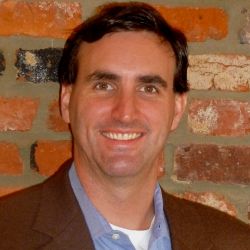Communications of the ACM
BLOG@CACM
Computer Science Education Week Extends Its Reach

The 2nd annual Computer Science Education Week (CSEdWeek) wrapped up last week, and thanks to some incredible partner support and engagement from the computing community it was a smashing success. With a new website providing targeted resources and more than 270 CSEdWeek-related events and activities we were able to engage students, parents, teachers and the computing community around the world.
What started out last year as an idea by Professor Joel Adams (Calvin College) has grown into a full fledged community effort supported by the United States Congress. This year's effort, Chaired by Debra Richardson (one of the authors of this article), was a collaborative effort of the Association for Computing Machinery (ACM), National Science Foundation (NSF), Computer Science Teachers Association (CSTA), National Center for Women & IT (NCWIT), WGBH, Computing Research Association (CRA), Anita Borg Institute for Women in Technology (ABI), Microsoft, Google, SAS, Intel, and the Defense Advanced Research Projects Agency (DARPA). CSEdWeek is also a major awareness building activity of a new coalition called Computing in the Core, a non-partisan advocacy coalition of associations, corporations, scientific societies, and other non-profits that strive to elevate computer science education to a core academic subject in K-12 education.
 Cameron Wilson is Director of ACM's PolicyOffice, Washington Cameron Wilson is Director of ACM's PolicyOffice, Washington |
This year we asked the computing community and our partners to get out in their communities and spread the word about the impact of computing and the dire need for better computer science education. They answered the call. We had a diversity of pledges from around the world to hold events and carry out activities. Here is a small sampling:
- The University of California, Berkley hosted more than 250 students at an all-day event featuring activities and speakers
- In Woodridge, Illinois a teacher launched a tech club in her junior high school
- Microsoft in Cambridge, MA hosted 50 technology- and accounting-focused high school students
- A K-12 teacher in India conducted an activity called Inter-House Computer Science Quiz, which was designed by students to test the level of computer science knowledge in high school students.
- The ACM Student Chapter at The City University of New York (CUNY) visited the CUNY High Performance Computing Center
- Multiple campuses of the University of Toronto hosted approximately 340 9th grade students and their teachers for a full-day event exploring computer science with hands-on workshops and large-group sessions.
The Canadian universities were particularly active, with more than 25 campuses hosting CSEdWeek events ranging from computing camps to public videos and various student competitions to CSUnplugged sessions.
We also saw some major national coverage of CSEdWeek this year. The White House blog featured CSEdWeek as story of the week and tweeted a celebratory message in binary! The US Secretary of Education, Arne Duncan, highlighted CSEdWeek on his blog. And our major corporate partners spread the word with Microsoft's CTO, Google's Director of Education, and SAS's CEO highlighting computer science education week to their employees, customers, and the public at large.
CSEdWeek received almost 1700 pledges of support from 45 states in the US (in addition to DC, Guam and Puerto Rico) and 34 other countries. 45% of the pledges came from Massachusetts and California, while the highest pledging cities included Marlborough and Shrewsbury, Massachusetts and Irvine, California. Over 33% of the support pledges came from K-12 students, 17% from college students, and 15% from K-12 teachers. These statistics indicate that we achieved our goal of engaging students and teachers as well as the computing community around the world.
These were all noteworthy accomplishments for CSEdWeek, which is really still in its infancy, but our work isn't over. We need the computing communities support and engagement over the next 12 months in building to next year's celebration to make it even bigger. There a few things you can still do to support CSEdWeek:
- Pledge your support for CSEdWeek;
- Become a supporter and get involved with Computing in the Core, which will do outreach on K-12 issues throughout the year review;
- If you held an event or did an activity for the week tell us your story (and if you held an event or did an activity and didn't pledge, go ahead and pledge first and then tell us your story);
- Check out the resources we have complied to showcase computer science education; and,
- Review the events held this year and begin planning for what you might do during CSEdWeek 2011.
Thank you to all those involved in this year's celebration, and we look forward to even bigger and better CSEdWeek in 2011!
Debra Richardson is Chair, Computer Science Education Week 2010 (www.csedweek.org), Visiting Professor of Technology, Learning and Society, CUBoulder and Professor of Informatics, UCIrvine
Cameron Wilson Director of the Office of Public Policy for the Association for Computing Machinery
Comments
Anonymous
Hi,
The computer science education week is very successful.We also saw some major national coverage of CSEdWeek this year.so computer science education is very important for every person.The all over world colleges and university is very active for computer science education.
Displaying 1 comment